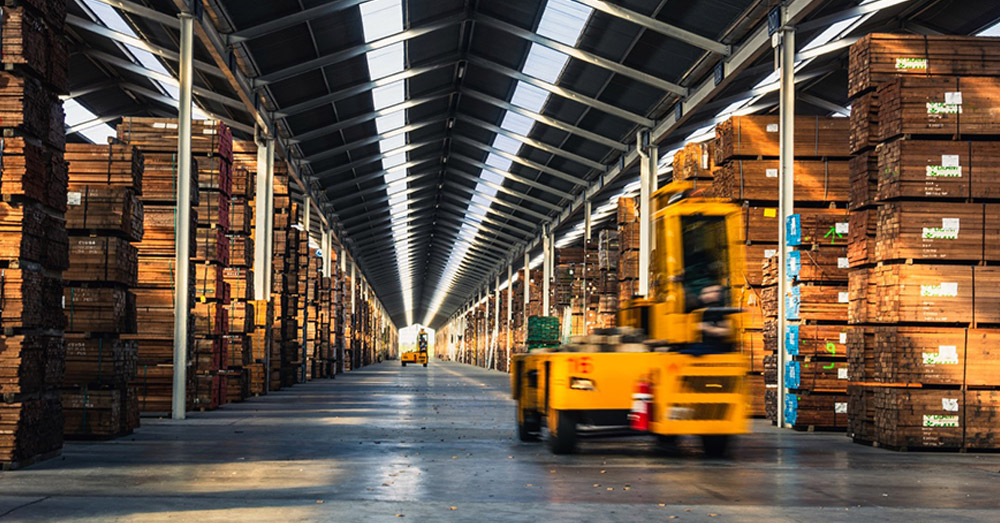The Belgian fifth-generation family company, founded in 1883 Vandecasteele Houtimport still has to deal with old prejudices on the use of hardwood. “Everyone knows that timber is a sustainable material,” says Isabelle Polfliet, Compliance Manager at Vandecasteele, “A lot of users still associate tropical timber with the disappearance of the forests.” Nevertheless, Vandecasteele Houtimport is fully committed
to certified timber.
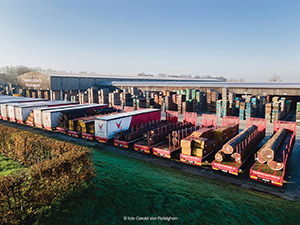 Sustainability and reliability are an essential part of Vandecasteele Houtimport’s DNA. The company is determined to achieve the goal of trading only certified timber by 2025. Isabelle Polfliet, “As far as softwood is concerned, we are at 99%. The challenge, however, lies with the tropical hardwood and today we are at 66%!” Vandecasteele Houtimport has a clear vision: only certified timber has a future.
Sustainability and reliability are an essential part of Vandecasteele Houtimport’s DNA. The company is determined to achieve the goal of trading only certified timber by 2025. Isabelle Polfliet, “As far as softwood is concerned, we are at 99%. The challenge, however, lies with the tropical hardwood and today we are at 66%!” Vandecasteele Houtimport has a clear vision: only certified timber has a future.
Substantial investments have been made over the years to be able to realize this future perspective. “You cannot achieve this goal overnight. This is a long-term job, in which all partners must be included. If we want to assure our customers that we keep our promise to only trade timber that comes from well- managed, certified forests, we need to be sure that all our trading partners share the same strictest certification and sustainability processes as we do.”
This has resulted in several actions within the company. “First of all, we were assisted by external experts to get the procedures and protocols in order within our company. For example, we apply a responsible purchasing policy that must be signed by every supplier.” Secondly, the team at Vandecasteele was reinforced with a forest engineer in Brazil. “That way we can keep a finger on the pulse of every shipment and we are able to accurately apply the ever-changing legislation in Brazil with great precision.
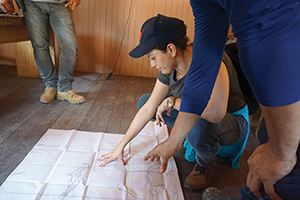 This sends an important signal to our suppliers. They know that doing business with Vandecasteele Houtimport means: complying with a procedure that is continuously refined and adapted. Every timber transport requires approval. When in doubt the timber is not accepted by us.”
This sends an important signal to our suppliers. They know that doing business with Vandecasteele Houtimport means: complying with a procedure that is continuously refined and adapted. Every timber transport requires approval. When in doubt the timber is not accepted by us.”
Digitalize
Last year another important step was taken in the partnership with 11 Foundry and their product Fibertrace. “This is in line with our intention to digitize all processes within our company. Fibertrace allows us to register all processes related to compliance in a structural and transparent way,” says Isabelle Polfliet.
“The choice for certified timber does not mean that we push all non-certified suppliers aside. We have a preference for certified wood. By working together with external auditors, we can carry out field audits and share the results and the expenses with colleague importers. This enables suppliers to gain insight into their processes and where there are areas for improvement. In this way, we will gain certified suppliers in due course.”
Vandecasteele has a long-term commitment to preserving the forests. The family business imports more than 125 different types of wood from 40 countries and has 105,000 cubic meters in stock, mainly certified hard and soft woods.
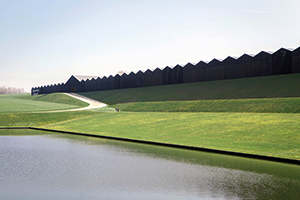 “This wide range of wood species is also due to our support for the LKTS program of FSC Denmark. With this we want to help promote the use of lesser known species. We keep these lesser-known types of wood in stock and offer them as an alternative. Too often, regulations refer to the known types of wood. From the point of view of good forest management, one must dare to choose the right durability class for an application instead of a specific type of wood.”
“This wide range of wood species is also due to our support for the LKTS program of FSC Denmark. With this we want to help promote the use of lesser known species. We keep these lesser-known types of wood in stock and offer them as an alternative. Too often, regulations refer to the known types of wood. From the point of view of good forest management, one must dare to choose the right durability class for an application instead of a specific type of wood.”
Preservation of the forest
In a well-managed forest, only mature trees are harvested, which amounts to one to three trees per hectare. After that, felling will not take place for at least 25 years. In this way the forest is preserved for the future. Mother trees, trees with bee nests and the like are of course not harvested.
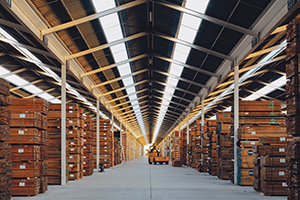 Positive evolution
Positive evolution
Isabelle Polfliet notes that a positive evolution is noticeable in consumer purchasing behaviour. Customers are increasingly asking questions about certification and the origin of the timber. Buyers are becoming increasingly aware of the need to use certified timber.
“Importing tropical wood goes further than just asking for certified wood. Internally, the processes and procedures must also be in order. Say what you do and do what you say. This means a continuous evolution within our company, because there are always new insights and legislation does not stand still (‘the new Deforestation Law’). Due to our collaboration with external experts, we are broadening our internal knowledge and continuing to make progress.”
Considerable steps have already been taken with the arrival of the EU Timber Regulation, but we can and should do even better. “We want to see and monitor a stronger application and support for certified timber. Vandecasteele communicates continuously with the users via the website and campaigns in order to get that message out. This is necessary, because the purchase of FSC® certified wood contributes to 14 of the 17 Sustainable Development Goals (or SDG’s) of the United Nations’. Since the year 2000 Vandecasteele Houtimport has committed itself through the Corporate Durability Charter by signing up to environmental objectives exceeding the applicable legislation. In 2018, the charter started a partnership with CIFAL Flanders, the local HUB of UNITAR, the Training and Education centre of the UN. In 2021, Vandecasteele Houtimport was the first timber company in the world to have obtained the international recognized ‘SDG Pioneer certificate’ from UNITAR CIFAL.
T +32 56 43 33 00
www.vandecasteele.be

